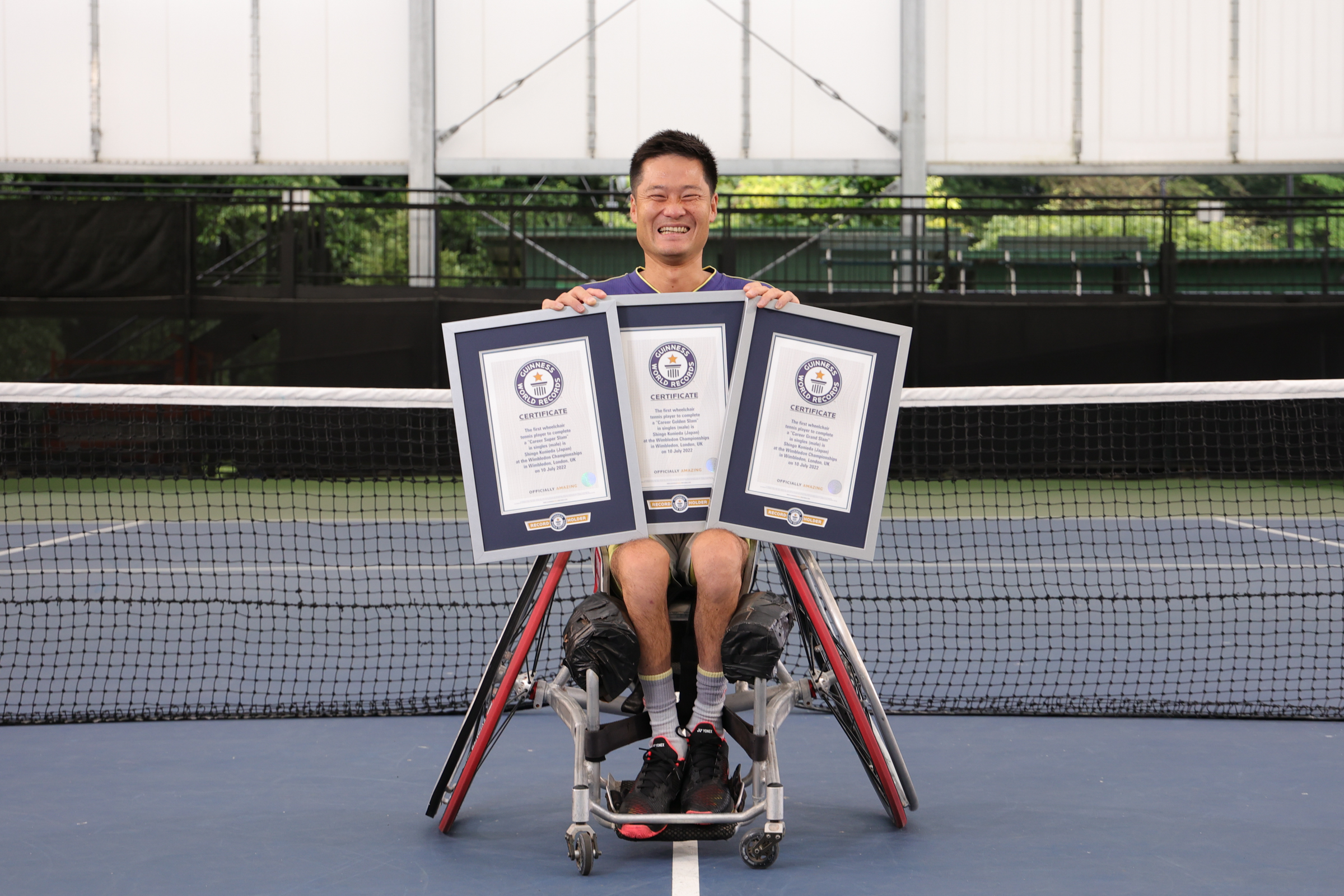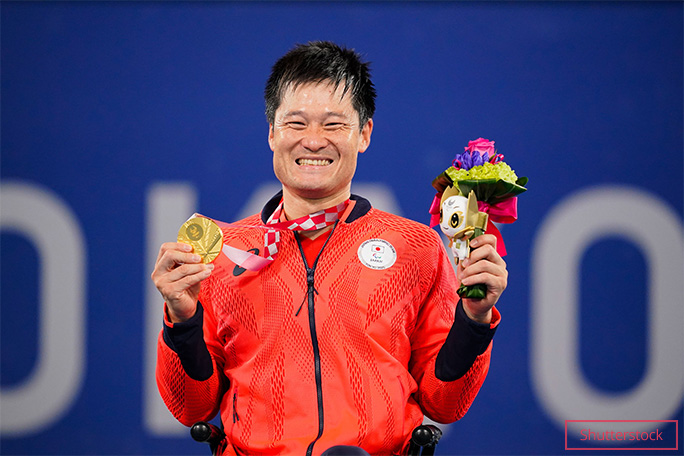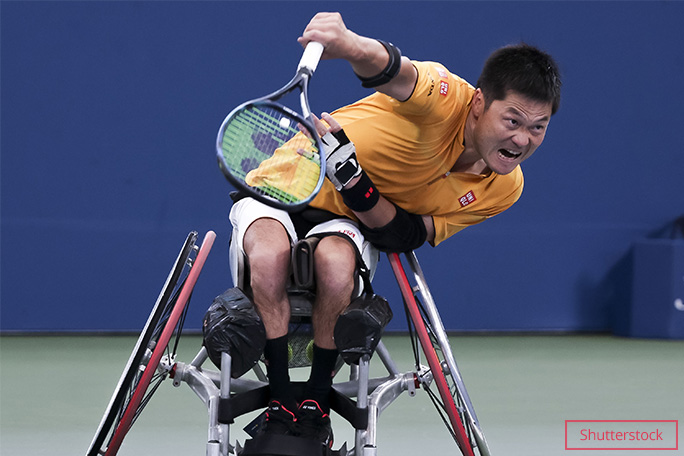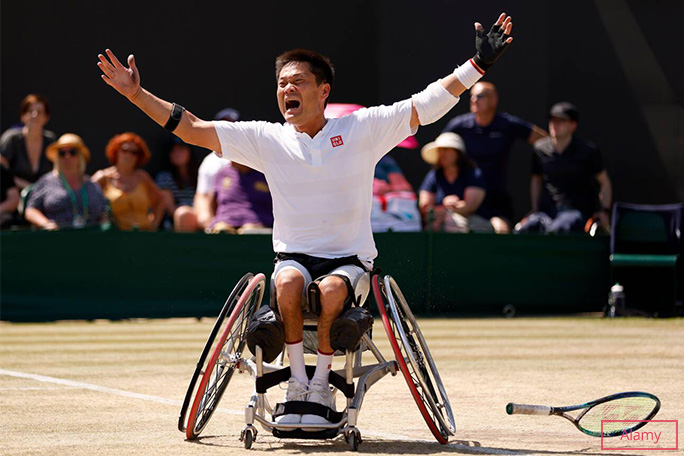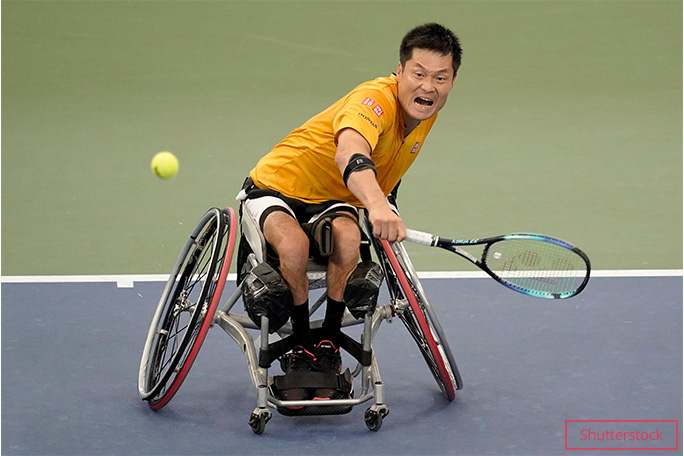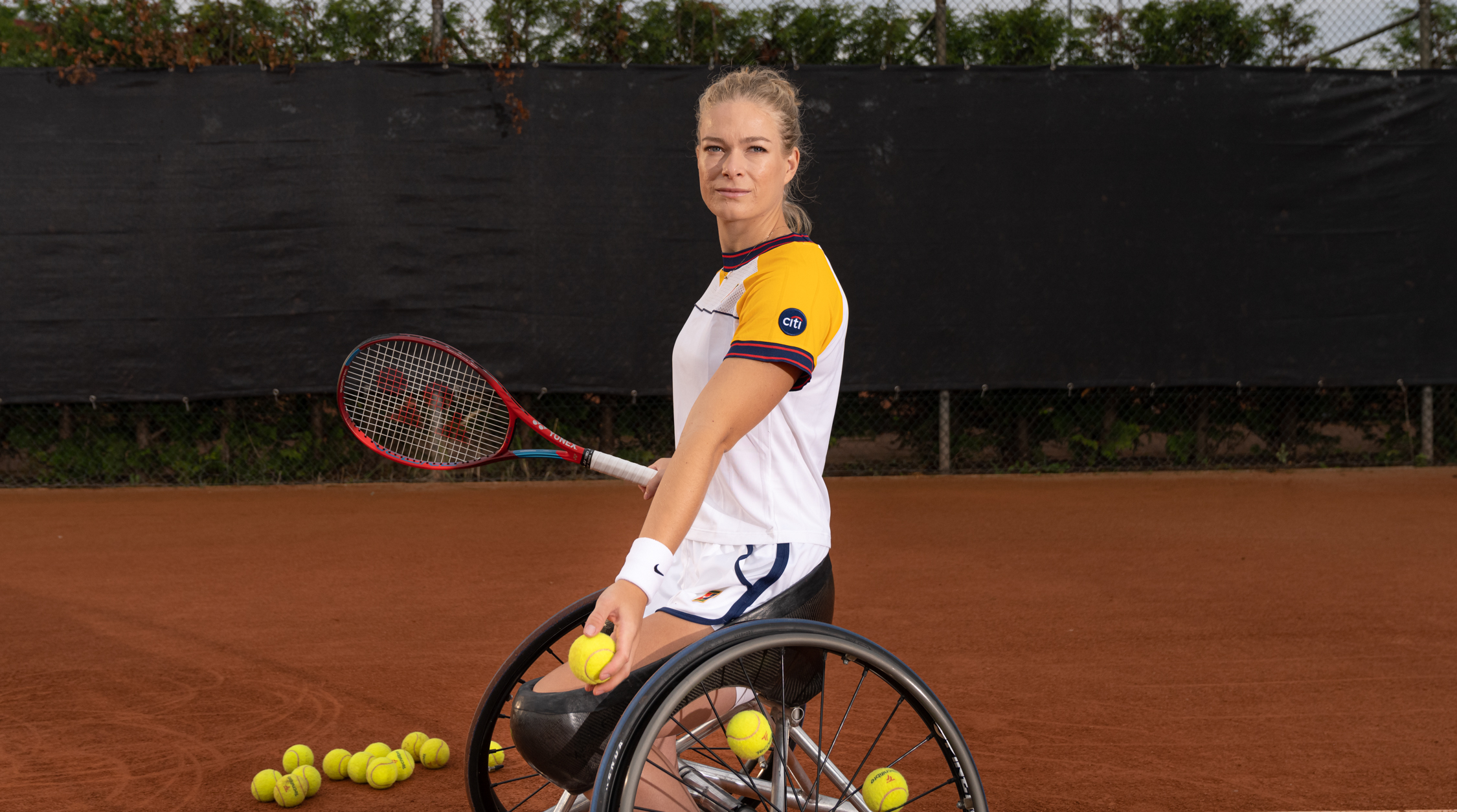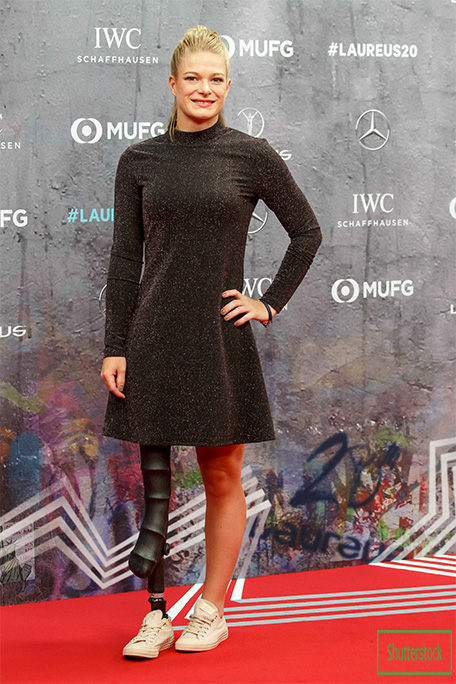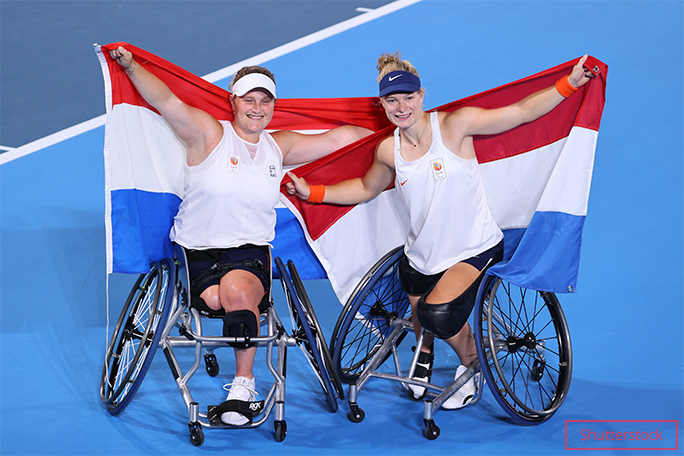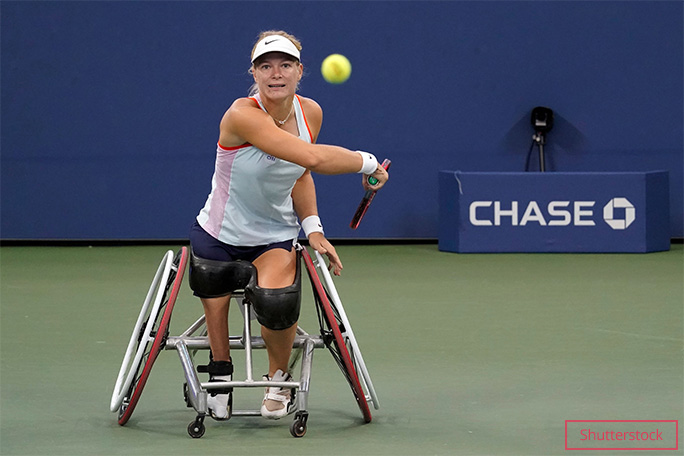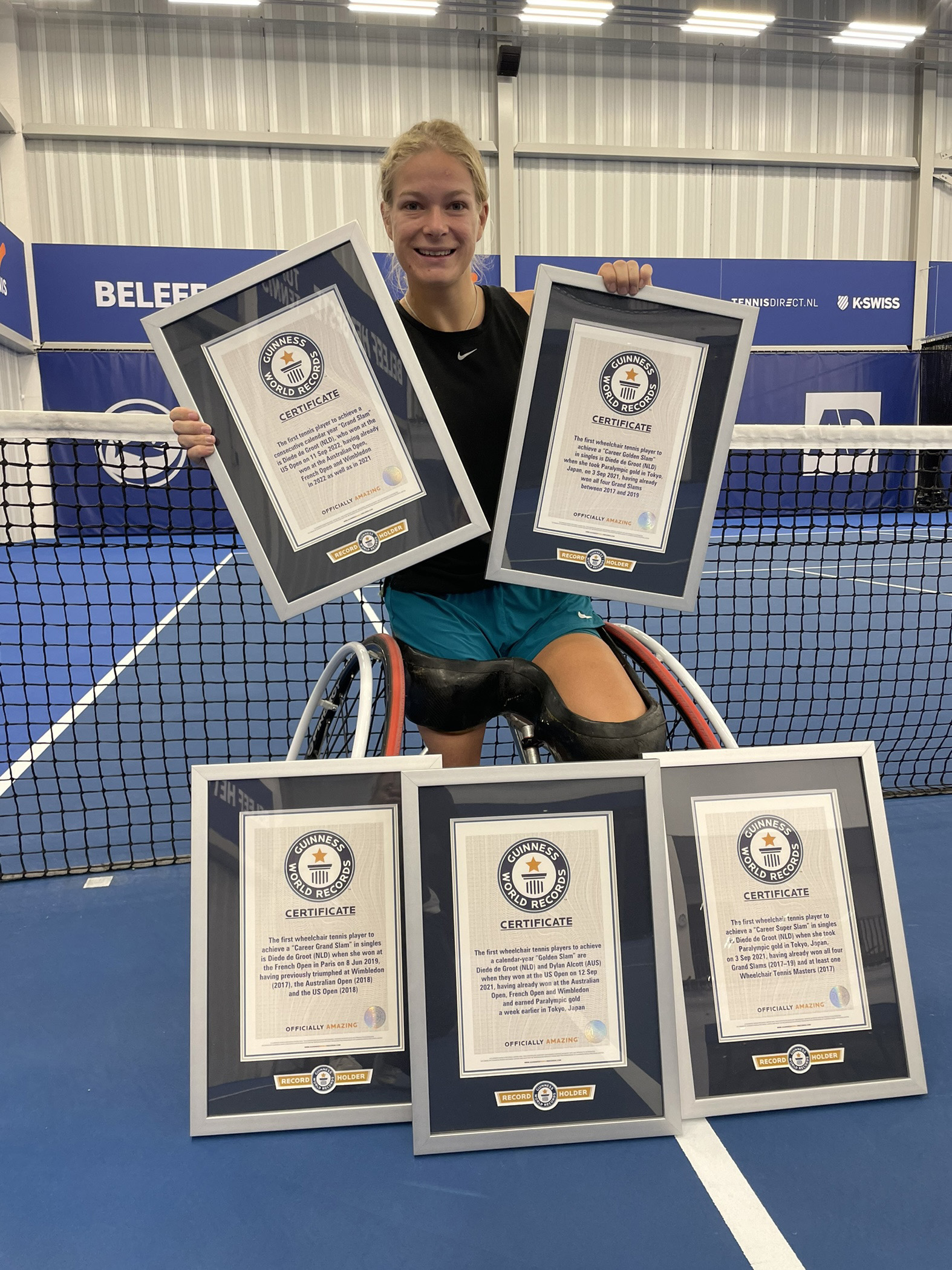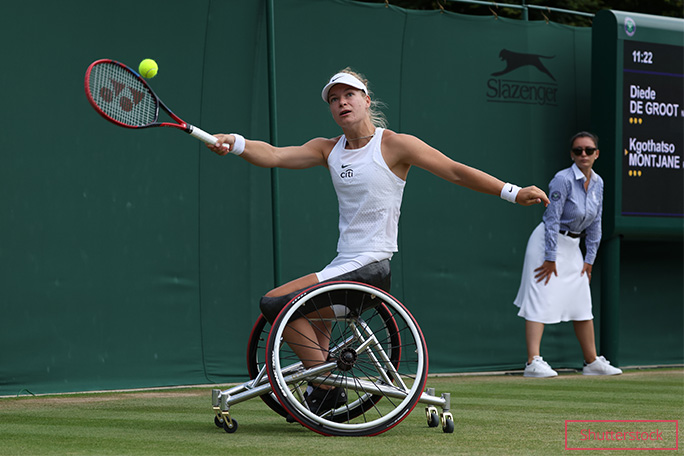Shingo Kunieda
On 22 January 2022, Shingo announced his retirement from wheelchair tennis, bringing down the curtain on a 21-year career in which he had dominated the sport, amassing a mind-boggling 50 Grand Slam titles.
But it was his Paralympic triumph on home soil that proved the most emotional of all.
Shingo was born in Tokyo on 21 February 1984. At the age of nine, he was diagnosed with a spinal tumour and underwent surgery that left him unable to use his legs.




